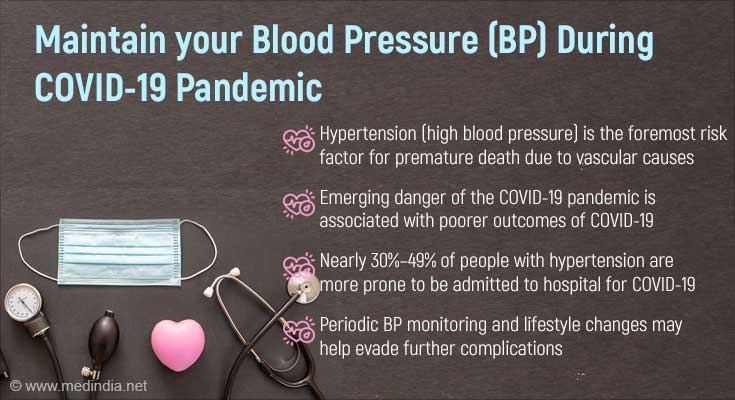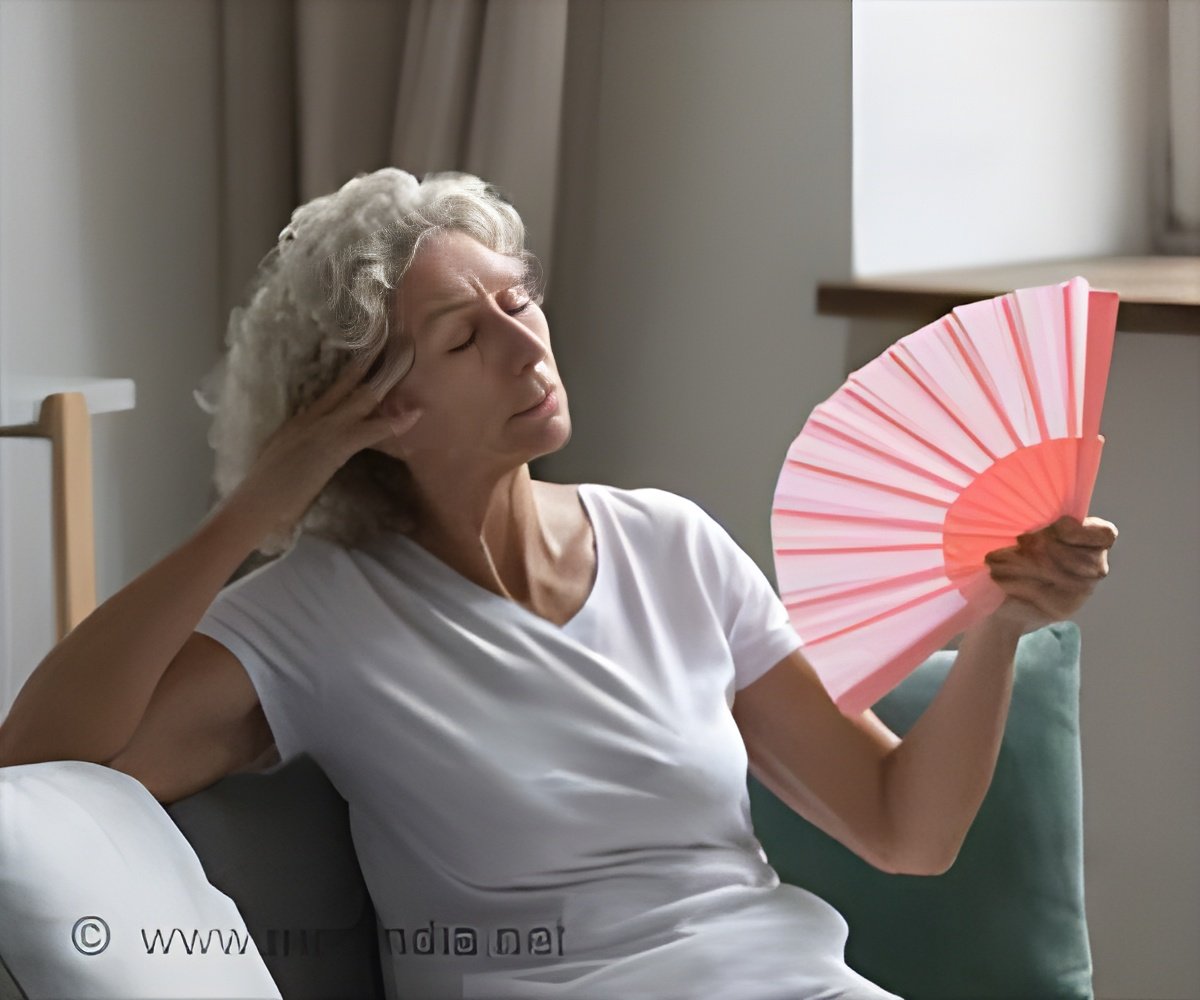2017.
High blood pressure presents no signs or symptoms unless serious damages are caused to the other organs. However, symptoms like sweating, anxiety, sleeping problems, headaches, and nosebleeds can accompany certain cases.
Due to its serious complications on the brain and heart, it was named as the number one killer by the World Health Organisation (WHO) in 2002, World Health Report. Every year, more than 10 million lives are lost due to this killer disease.
However, early diagnosis and appropriate treatment including lifestyle change greatly contribute to the prevention of hypertension.
Hurdles Posed by COVID-19
Apart from increasing the chances of other comorbidities and mortality in patients, COVID-19 also warrants extra precautionary measures among hypertensive patients. COVID-19 infection may increase the risk of complications in people (especially above the age of 60 years) with hypertension. They are 30%-49% more prone to be admitted to hospital for
COVID-19 than normotensive individuals and also associated with poorer outcomes of COVID-19.
Stress and lifestyle changes can impact the risk of hypertension. The rising panic due to the COVID-19 pandemic along with stress and fear, job insecurity, health concerns may influence the blood pressure of a hypertensive patient.
Initiatives Endeavoured
Certain governmental agencies and other authoritative organizations layout instruction for better protection to the public. The World Hypertension League has amassed a certain set of guidance, in the wake of the global coronavirus (COVID-19) threat for individuals affected with hypertension. However, there is no solid-based evidence if the type of hypertensive medications raises the probability of contracting or increasing the severity of COVID-19. More than 1,000 organizations were recognized for their efforts focusing on BP control in 2020.
The emerging waves of the pandemic have also stirred the routine outpatient clinics and thereby hampering periodic follow-up of chronic diseases . This creates a challenge for patients with high blood pressure to monitor their health regularly at home. To overcome these difficulties, the medical industry has prompted consultation through telemedicine for the follow-up of patients and their health.
Dealing with Hypertension during the Pandemic
Hypertensive individuals require extra precautions to maintain their health and avoid further complications of hypertension and COVID-19 infection:
- Continue taking your blood pressure medications as prescribed.
- Regularly monitor your blood pressure at home and look for any significant symptoms.
- Engage in physical activity, provided the social distance is maintained. Doing regular walking and physical exercise of at least 150 minutes (moderate aerobic exercise) or 75 minutes (vigorous-intensity exercise) is vital for maintaining blood pressure in hypertensive patients.
- Stay hydrated by drinking enough fluids regularly.
- A properly balanced diet (plenty of fresh fruits and vegetables) and lifestyle help keep blood pressure under control.
- It is advisable to reduce the salt intake in the diet of hypertensive individuals to less than 2.3 grams (1 teaspoon) of salt per day.
- Stop smoking and reduce alcohol consumption.
- Elude oily and fast foods high in trans fats and saturated fats.
- Keep a check on your weight. Every 10 kg of weight loss from the body, reduces the blood pressure by 5-10 mm Hg.
- Reduce stress and engage in relaxation techniques such as yoga and deep breathing.
- Consult your physician for any queries.
Measures to Keep COVID-19 at Bay!
- Along with management of hypertension, it is also mandatory to follow the following COVID-associated safety practices:
- Always ensure wearing a mask, avoid the crowd and poorly ventilated spaces.
- Clean your hands with soap (at least 20 seconds) or use an alcohol-based hand sanitiser if hand wash is not possible.
- Cough into a bent elbow or use tissue
- Do not frequently touch your face (eyes/nose/mouth)
-
Maintain physical distancing (6 feet – about 2 arm’s length) to evade the severity of COVID-19 infection - Isolate yourself and seek medical advice at the earliest if any symptoms suspected of COVID-19
- Eat healthily and maintain your immune system
Facts on Hypertension
-
Hypertension increases stroke risk to four times and that of myocardial infarction (a heart attack) to two times as compared to the normal blood pressure. - An unhealthy lifestyle like eating too much salt (sodium), being overweight, and not getting enough exercise, using tobacco can increase the risk of high blood pressure.
- Only 1 in 4 adults with hypertension have their blood pressure under control
- It is estimated that half of the adults in the U.S do not take medication
- In India, about 2.6 lakhs people die due to hypertension, thereby becoming the most prevalent chronic disease in the country
The present pandemic situation has delivered improbable transformations in the lives of many, greatly including the way healthcare is delivered and prioritized. While getting used to the new “normal” way of life, every hypertensive patient must ensure regular BP monitoring. This may help avoid further collateral damages to other organs and its complications amidst this pandemic.
References:
- How to address hypertension control during the COVID-19 pandemic
– (https://www.ama-assn.org/delivering-care/hypertension/how-address-hypertension-control-during-covid-19-pandemic) - COVID-19 GUIDANCE FOR PEOPLE WITH HYPERTENSION – (http://www.whleague.org/index.php/2014-07-09-22-47-11/covid-19-hypertension-guidance)
Source: Medindia



